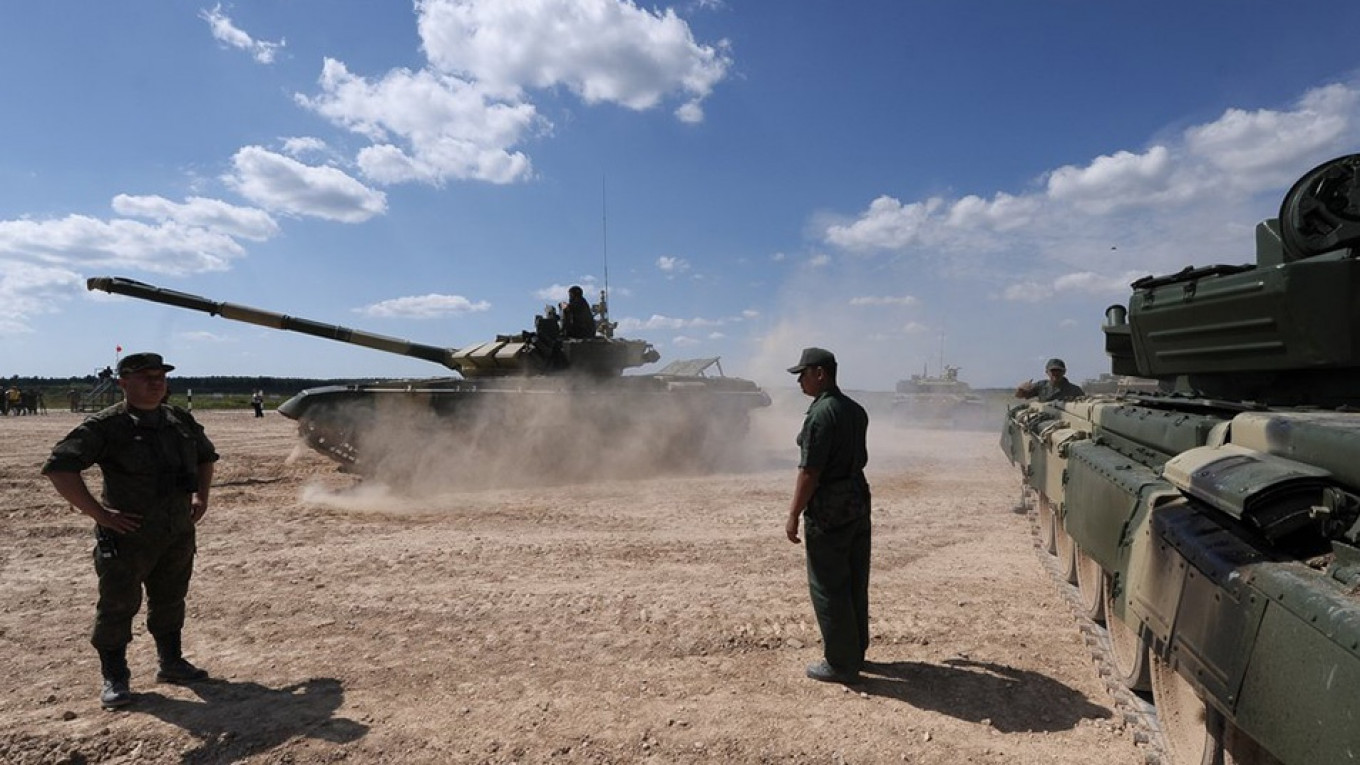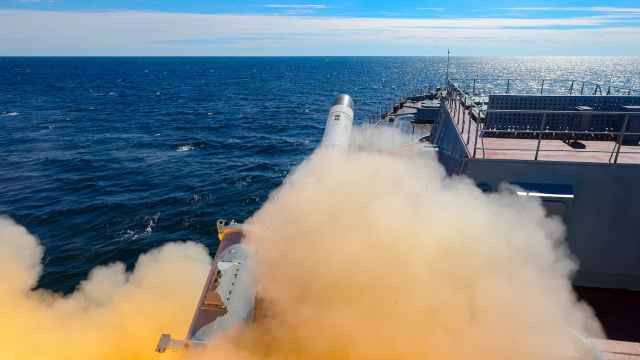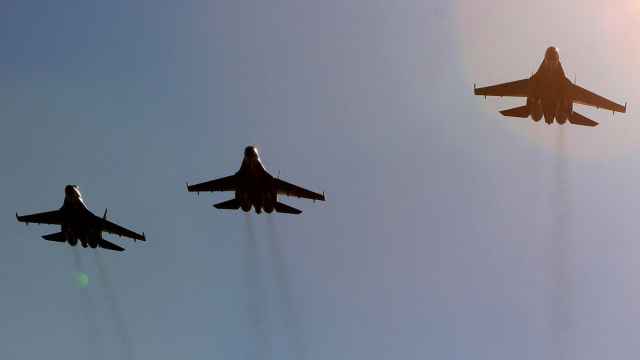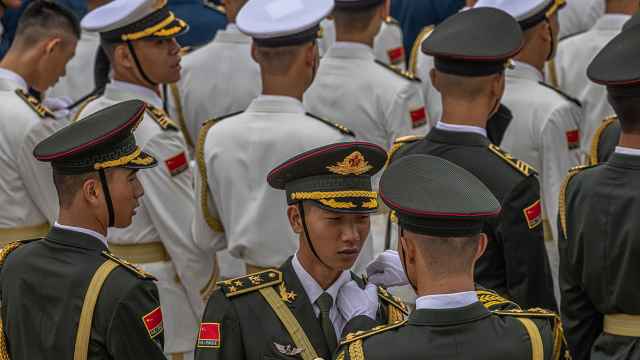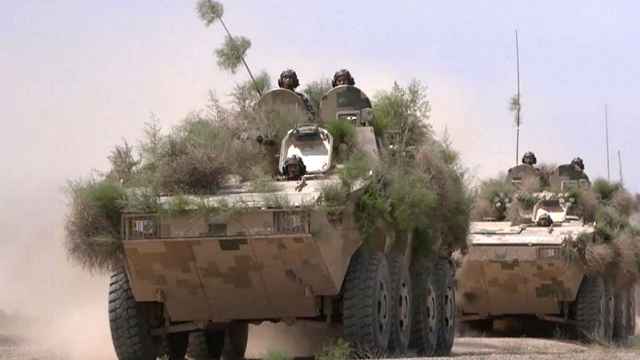As the West obsesses over Donald Trump’s legal and political challenges, Brexit and a host of other domestic crises, Chinese troops will join their Russian counterparts for Moscow’s largest military exercises in more than three decades.
Coming six months after Beijing’s biggest ever offshore naval drills, the joint war games are another reminder of how central military posturing now is to the world’s two most powerful authoritarian states.
While neither likely desires or expects war with the United States or its allies, both Beijing and Moscow want to give every impression they are increasingly ready – and are relying on that message to dominate their neighborhoods and intimidate less powerful nearby nations. Both countries also have an unambiguous message for the Pentagon that if war should come in Eastern Europe or the South China Sea, the United States would risk serious losses if it tried to intervene.
These landmark military exercises are part of a much wider picture of investment, development and weapons trials – even if the outcome has sometimes been mixed. According to reports, Russian forces are still attempting to recover a nuclear-powered cruise missile that failed on a test flight somewhere in the Arctic last year. China, meanwhile, is reported to have suffered its own significant increase in military aircraft crashes over the last two years, particularly in the South China Sea.
It’s a stark sign of how much risk these countries are willing to take on in their quest for military power – arguably significantly more than the United States or any of its European and Asian allies.
Russia's September "Vostok" drills will involve up to 300,000 troops, just as Moscow deploys its largest naval formation in several years to the Mediterranean. As well as a naked warning to the United States not to intervene with any further Russian action in Syria, they also likely act as domestic political messaging. Russian President Vladimir Putin’s poll numbers have been waning as of late, and military posturing could help his popularity. Chinese President Xi Jinping has also increasingly embraced militaristic nationalism as he entrenches his power – but if war should actually come, both countries sees themselves in rather different confrontations.
Russia sees future wars most likely taking place on land, a repeat of scaled-up versions of 2008 and post-2014 conflicts with neighbors Georgia and Ukraine, in which victory depends on deploying overwhelming military force within a few miles of Russian territory while keeping the United States and other powerful Western states from intervening.
China, meanwhile, sees its most likely wars taking place offshore, either over disputed territories in the South China Sea or Taiwan, which Beijing considers a rogue province and which has long feared mainland China might intervene to snuff out its hopes for independence. As with any territorial ambitions Moscow might have in Europe, however, victory would again depend on keeping U.S. and other allied forces back and out of theater as much as possible for the duration of the war.
Much of the new technology both Moscow and Beijing are developing is designed with this goal in mind, particularly China’s missiles and submarines built explicitly for sinking U.S. aircraft carriers. But new military purchases and deployments are also part of a much wider diplomatic and propaganda strategy. Russia has lobbied furiously against Georgia and Ukraine joining NATO, while those who watch Moscow’s social media and television feeds closely say it has also been attempting to undermine support for the Baltic states, NATO’s most Eastern members.
China has launched a savage diplomatic campaign this year to further isolate Taiwan, encouraging airlines and foreign governments to view it once again as part of mainland China. In these attempts both countries have had very limited success, but many believe they will continue to intensify their efforts in the months and years to come.
The United States’ response, unsurprisingly, has been to do very much the same. In Europe, that has meant a dramatically stepped-up involvement in NATO exercises, particularly in countries that are most vulnerable to Russia, such as the Baltic states, Norway and Poland. U.S. and allied warships and aircraft have continued to aggressively control disputed areas of the South China Sea, even as Beijing has dramatically increased its military presence in the area.
Clearly, that’s something that infuriates both Moscow and Beijing. China has tried to exclude the United States from regional military exercises it wants to organize with other members of the Association of Southeast Asian Nations (ASEAN), while Russian media has repeatedly complained that NATO forces in Eastern Europe are themselves provocative and a threat to nearby Russian troops and territory. All this feeds into a rising tide of global distrust. This year, the United States disinvited China from taking part in its annual RIMPAC Pacific naval drills, in part due to espionage fears but also in protest against China’s growing South China Sea bellicosity.
For all their increasingly allied interest against America, there are no signs Russia and China particularly trust each other, either. Moscow has long feared Beijing might try to grab territory in its sparsely populated center, while Beijing has had its own worries about how Russia might use its military against it. Indeed, some observers suspect one of the principal reasons Moscow invited Beijing to take part in next month’s exercises is to keep Beijing from worrying they may be a precursor to actual military action.
Where the truth lies is inevitably hard to know. But the more energy and focus the world’s great powers put into extravagant war games, the greater the likelihood that they may find themselves in a real and perhaps uncontrollable conflict.
Peter Apps is Reuters global affairs columnist, writing on international affairs, globalization, conflict and other issues. He is founder and executive director of the Project for Study of the 21st Century; PS21, a non-national, non-partisan, non-ideological think tank. The views and opinions expressed in opinion pieces do not necessarily reflect the position of The Moscow Times.
A Message from The Moscow Times:
Dear readers,
We are facing unprecedented challenges. Russia's Prosecutor General's Office has designated The Moscow Times as an "undesirable" organization, criminalizing our work and putting our staff at risk of prosecution. This follows our earlier unjust labeling as a "foreign agent."
These actions are direct attempts to silence independent journalism in Russia. The authorities claim our work "discredits the decisions of the Russian leadership." We see things differently: we strive to provide accurate, unbiased reporting on Russia.
We, the journalists of The Moscow Times, refuse to be silenced. But to continue our work, we need your help.
Your support, no matter how small, makes a world of difference. If you can, please support us monthly starting from just $2. It's quick to set up, and every contribution makes a significant impact.
By supporting The Moscow Times, you're defending open, independent journalism in the face of repression. Thank you for standing with us.
Remind me later.



